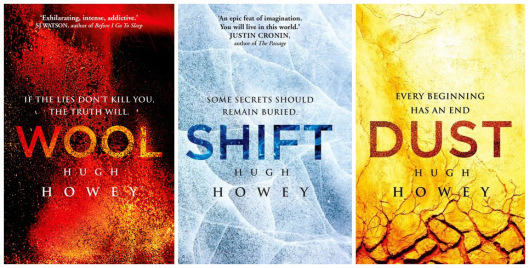
‘Game of Thrones’ Season 6 finale not terribly shocking
If you haven’t seen the Season 6 finale of “Game of Thrones,” you may want to come back after you’ve seen it. This is your spoiler warning.
Let’s talk about Cersei’s industrial goth dress. I’m guessing someone in the costume department has seen the “Hellraiser” movies way too many times, because I feel like I’m watching Clive Barker’s “Game of Thrones.” Let’s not forget the Night King looking like Pinhead’s distant cousin:
Everything is happening, and it’s about time. We knew Cersei was planning something sinister, but who knew how big it would be? That wildfire explosion was crazy. One thing I didn’t see coming was the end of Margaery, Loras, and Mace Tyrell. But I was happy to see those pesky Sparrows go down.
Walder Frey also had it coming to him, after the carnage of the Red Wedding. They say revenge is a dish best served cold, but Arya apparently believes it’s a dish best served with one’s sons baked inside. Gross.
The truth of Jon Snow’s parentage was figured out by readers of the books some time ago, so last night’s “shocker” wasn’t much of a revelation, but it was satisfying to see it finally play out on screen, even if we knew all along Jon wasn’t Ned’s bastard son. I think Ned would be proud of the man his nephew has become. “The King in the North!”
Daenerys’ scenes – some of my favorites in the first few seasons – have lately been a batch of fries sitting under a heat lamp while the other stories catch up, so it’s nice that she’s finally going somewhere. The part where she dumps her boyfriend was blah, but it’s so darn touching when she names Tyrion the Hand of the Queen, it almost makes up for it.

It’s nice that we got to see a little bit of everyone, since it’s the last episode we will get until 2017. But come on, that was not enough of Sam and Gilly. (Cool library! And then we move on.)
I think the most unexpected and breathtaking moment of the finale was Tommen’s suicide. But the most heartbreaking was Davos confronting Melisandre about Shireen’s murder. “I loved that girl like she was my own,” he tells her. “She was good, she was kind, and you killed her!” (Stop making me cry, Onion Knight!)
I love GoT, and I’m going to miss it while it’s gone. Until next year.
In other news
I’m reading Hugh Howey’s post-apocalyptic “Wool” series (which is awesome – go read it right now if you haven’t), and hopefully I will have more news to report about this soon – “Guardians of the Galaxy” writer Nicole Perlman has reportedly been hired to re-write “Wool” for 20th Century Fox and producers Ridley Scott and Steve Zaillian.

“Wool” began as a stand-alone novella, which Howey published through Amazon’s Kindle Direct Publishing system. Interesting note: Ridley Scott’s “The Martian” also was based on a self-published book. Self-publishing seems to be gaining more respect.
Maybe anyone can write a novel. Maybe even … robots? Yes, as Hugh Howey himself predicted, a novel has recently been written by artificial intelligence. The AI had some help from humans, so writers aren’t obsolete just yet. The novel, a team effort led by Hitoshi Matsubara, a professor at Future University Hakodate, was an attempt to win Japan’s Nikkei Hoshi Shinichi Literary Award. The novel, “The Day a Computer Writes a Novel,” didn’t win, but it passed the first round of screening.
The idea of robots taking over the world is just science fiction, though. Right? Well, not if you believe in a theory known as “technological singularity.” Singularity theorists say that superintelligent machines will one day overtake humans. Of course, there have been multiple books, movies and TV shows about cyborgs, androids, robots, or machines overthrowing humans. Most of them seem too far-fetched to come true, but some of them (“Ex Machina” and “Her”) seem eerily possible.
Moving on to a more scientifically plausible prediction about non-human intelligence, a Cornell student recently estimated that Earth won’t contact alien life for another 1,500 years. This might sound like a wild guess, but it’s based on math: Evan Solomonides and professor Yervant Terzian presented a paper earlier this month, at the American Astronomical Society meeting, which explains that because we have only been sending signals to space for 80 years, we’ve reached less than one percent of the galaxy. We shouldn’t expect to make contact until we’ve reached at least half of the solar systems in the Milky Way.
The astronomers address what’s known as the Fermi Paradox, which asks: “There must be other planets like Earth, so why have we not heard from them yet?” Solomonides’ answer is a good one, but I will offer up another possibility: Maybe the aliens are just waiting to see if this Trump thing blows over before they decide if we are worth talking to.
“Game of Thrones photos,” HBO.


















